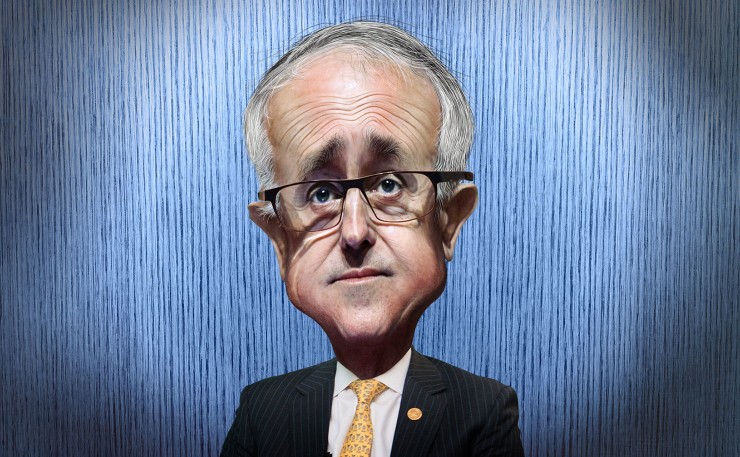Malcolm Turnbull claims journalists Peter van Onselen and Wayne Errington are lying over alleged discussions around negative gearing. The reporters stand by their sources. Dr Misia Temler weighs in on memory recall and truth-telling.
On Thursday in Parliament the Prime Minister controversially accused prominent journalist Peter van Onselen of spreading lies in van Onselen’s and Wayne Errington’s new book “The Turnbull Gamble.” Specifically, the PM accused the writers of making up the fact that discussions on reforms to negative gearing took place in the Liberal Party prior to the election.
Van Onselen vehemently stands by his allegations and argues that vividly recalled details of the discussions that took place in cabinet by multiple sources indicate that the allegations must be accurate. The public wants to know who is lying and who is telling the truth?
The controversy illustrates to us the stringent expectations of memory recall in applied settings. It is generally assumed that people in the spotlight will be motivated to recall accurate details as the potential consequences are severe. But is this expectation too high?
The book refers to conversations that happened in the lead up to the election. Yet, the sources were interviewed a considerable time after the alleged discussion took place. Research has indicated that how we remember personal experiences is highly reconstructive.
Although memories can at times seem vivid and clear, this may not be an indication of complete accuracy. Memory does not work like a video camera, capturing our experiences simply by recording what is in front of us. Rather than lying, it is possible that the PM or van Onselen’s sources are misremembering the discussion that allegedly took place.
Could the PM be misremembering?
One can imagine that a day in the life of a Prime Minister is filled with many important meetings, discussions and conversations. It is possible that the PM had forgotten the alleged discussion. Forgetting is an adaptive and essential process of our memory. Most of what we experience is, as a matter of fact, quite quickly forgotten. This is highly beneficial as recalling every single little detail would constrain our ability to draw, interpret or extract any meaning from the experience.
Research has established that memory is goal orientated. We tend to remember events that are consistent with our goals. As our goals change so do our memories of the past. This is because we remember not only to convey information but to reinforce our identity.
Our memories are malleable and they are continually updated as goals shift. Although we may have a need to accurately depict the past, we also have a strong need to keep a coherent sense of continuity.
As the Liberal Party policy has consistently not supported reforms to negative gearing it would be plausible that the PM recalls memories that are aligned with the Party’s long standing policy stance, and may even have forgotten memories that are not aligned with the Party’s policy.
Alternatively, could van Onselen’s sources be misremembering?
The strength of Peter van Onselen’s defence of the accuracy of his allegations is that he relies on multiple sources. Could it be possible that they all misremembered the discussion, and if so how could this potentially occur?
When people remember together, this can help them remember more and be more confident of their accuracy. But it can also change their memory of what happened.
Research has shown that false memories can develop due to social influence. For example, a person who attended a dinner party may misremember the person who initiated a particular conversation at the party. If they discuss this inaccurate information with others who attended the dinner party, this can change the memories of the other people, even if they were present at the original conversation.
Research has consistently shown that when people discuss a mutually experienced event with one another, their memories for details of the event can change; it only takes one person reporting an inaccurate detail to influence the memory of others. This is called ‘memory conformity’ or the ‘social contagion of memory’.
Within the context of the Liberal Party Cabinet, it is plausible that social contagion could have occurred and that members may have developed false memories.
As Van Onselen’s sources relied on serve together in the cabinet and also on a review committee, they are frequently together and often conversing. It’s plausible that discussions in Cabinet are later discussed in informal settings amongst each other. Potentially all it would take is for one member of the Cabinet to contaminate the memories of others by inaccurately attributing a conversation to the PM.
In general, disagreements of whether discussions happened or did not happen can be intentional and due to secrecy and deception, but they can also be unintentional and due to forgetting and misremembering.
Our autobiographical memory accounts of events are continually updated. Our experiences, identity, motivation, goals and social influences contribute to changing our memory each time we remember.
Whether the current controversy falls into any of these categories is unknown, but it does provide an interesting example to explore how memory actually works.
Donate To New Matilda
New Matilda is a small, independent media outlet. We survive through reader contributions, and never losing a lawsuit. If you got something from this article, giving something back helps us to continue speaking truth to power. Every little bit counts.





